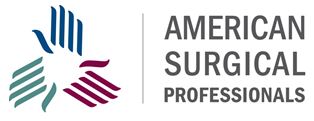Not Just a Complicated Hassle
Hassle…the word itself conjures up feelings of frustration and despair. What is the point? Why do I have to jump through so many hoops? What business is it of anyone what I did twelve years ago? It doesn’t matter! That is the feeling many people have when they think of the entire credentialing process. Why does it have to be so difficult?
Credentialing can be an exasperating and lengthy process, but a provider will not be able to work in a hospital without a completed credentials file. Having a thorough credentialing process helps to verify a person’s experience and expertise. It allows us to determine the correct fit for a provider in a hospital setting. Successful credentialing enables a clinician to work in a hospital setting with confidence and it protects the patients by lowering the risk of medical errors.
When a new practitioner comes onboard, there is no way to determine if he or she is qualified or competent without a thorough credentialing process. When an application is submitted, every detail of that application is verified. Unlike a general Human Resource process where only a small amount of the person’s history is reviewed, the credentialing process verifies everything from the present day all the way back to when he or she completed professional training. Every item on the application is verified directly with the primary source. By verifying all of this information, we are able to confirm that the clinician has the experience required to ensure the needs of the patient will always be met.
Credentialing is an ongoing process that doesn’t just stop with the first submission of paperwork – it continues throughout the career of the provider. Renewal of licenses, board certifications, immunizations, continuing education… all of these tie into the employee file, which then ties into the hospital credentialing which ties into payer credentialing which ties into the requirements of regulatory agencies like Joint Commission, AAAHC, CMS, etc. In order to permit a provider to continue working at a facility, current competencies must be verified at least every two years. This is done through reappointment processes at each of the hospitals where a provider may practice as well as through ongoing requests for information from other members of the surgical team including schedulers, surgeons, nursing staff, etc.
How can you help meet these credentialing requirements?
- Always be complete and honest in filling out your paperwork. Never leave information off of your application hoping the process will go faster. Information always comes out, and you don’t want to give the impression that you were hiding something.
- Submit all required information including complete addresses, email and fax number whenever possible. With the ease of computers, it is faster and easier to send requests electronically rather than in paper form.
- Notify all of your references that they will be contacted and ask them to respond quickly.
- Keep your forms up to date.
- Renew all expiring documents at least a month in advance and submit them quickly so they can be processed.
- Complete your continuing education throughout your certification cycle instead of waiting until the last minute. If you are required to obtain 50 CEU hours each renewal period, break it down by the number of years and complete some each year. It not only keeps you current and up-to-date with your medical education, it makes it easier when it is time to renew.
There are many aspects involved with being credentialed over a lifetime. By working smart – and working together – we can establish a process that is not only efficient, but that is easier for everyone involved.[/cs_text]
[/cs_column][/cs_row][/cs_section][/cs_content]

